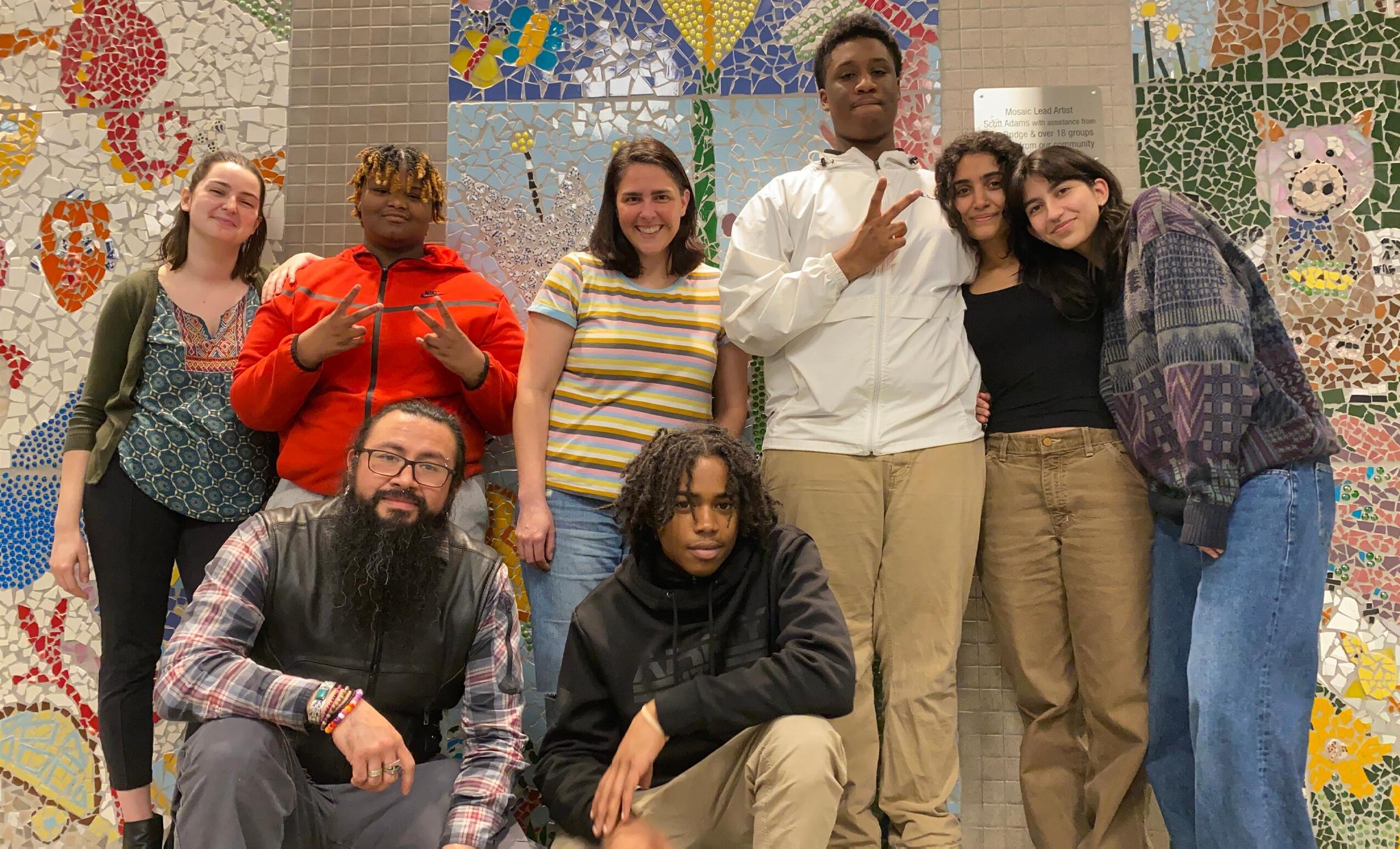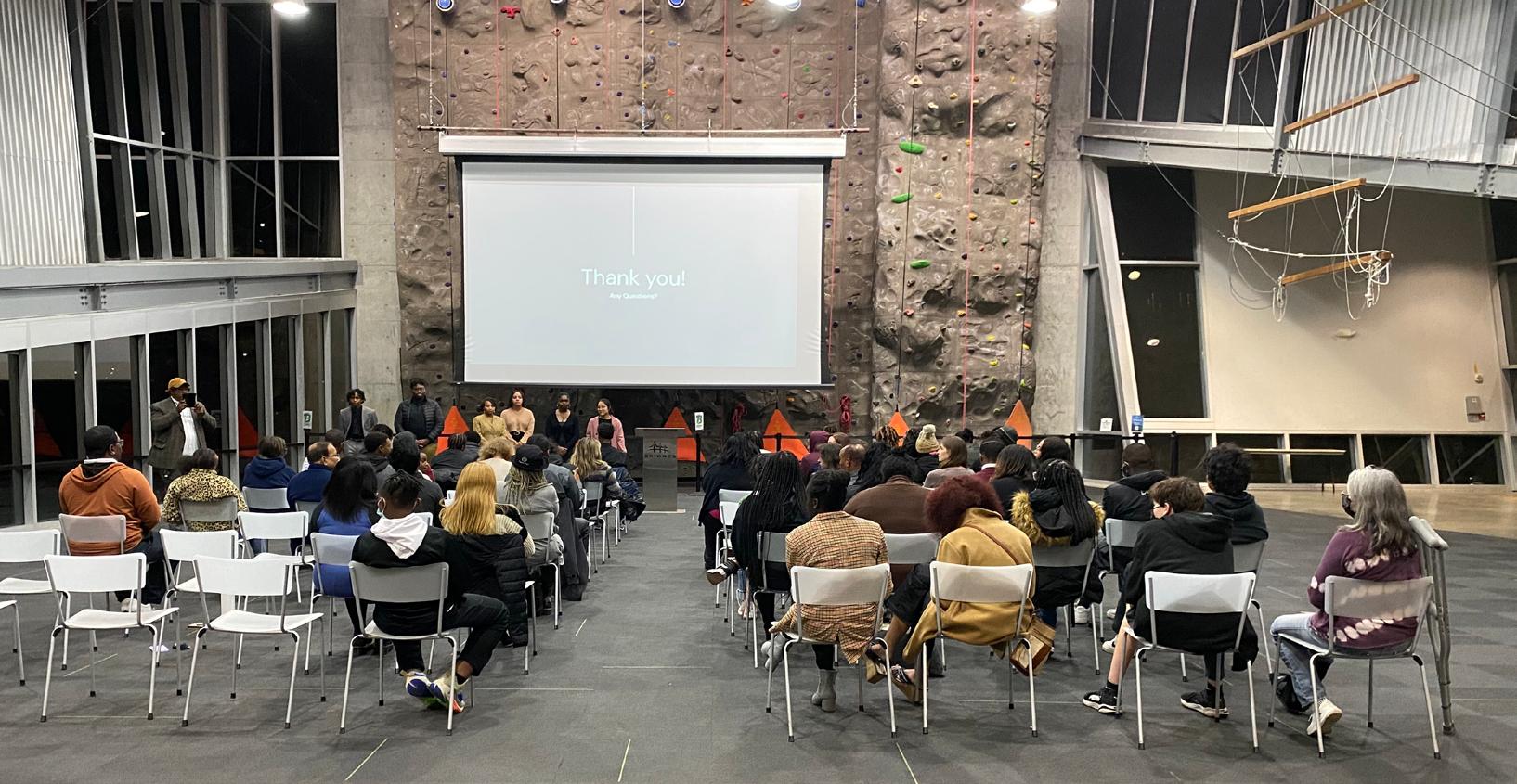
4 minute read
YOUTH ADVOCATES FOR YOUTH JUSTICE
Public Health, as it moves into the next iteration of our field, is focused on advocacy and equity. The current Youth Participatory Action Research (YPAR) project with the Youth Justice Action Council (YJAC) is a great example of what a youth-adult equitable collaboration looks like and how we as public health experts can support, not appropriate, the work that our community members are already doing.
The research topic, development of the complete the project. YJAC works to include the voices of directly impacted people at the decision-making table. Through a group interview, the youth participants shared their thoughts about the impacts of this type of community collaboration, exploring why these partnerships are important and how it affects their hopes for the future.
In soliciting feedback from the youth on their comprehension of the mission of the Youth youth-centered curriculum and plan for dissemination of project results are all driven by members of YJAC and written in true collaboration with Dr. Jennifer Turchi. The youth decided the research topic will be focused on youth transfers/waivers from juvenile court to criminal court and the trauma of those experiences. We plan to incorporate elements of photovoice as the data collection method and create peace circles, as the way for participants to share their experiences.
Turchi’s role is to facilitate the curriculum, helping YJAC members continue to develop their research and professional skill sets to
Justice Action Council, they noted that “All of the work we’ve done has been to work toward (the mission) by embodying it ... we are a group of justice-impacted and connected youth who are working to manifest that into the system.”
Another youth added that, “our mission in the short term is to transform the programming in the current system so that the youth that are in there are getting better resources … [in] diversion, during incarceration and during reentry. Our ultimate goal though is to abolish the system as it currently exists ... so we need to push for truly transformative solutions to create the change we want to see.”
“THE YJAC COLLABORATION WITH DR. TURCHI AND THE UofM SCHOOL OF PUBLIC HEALTH ALLOWS THE YOUTH TO NOT ONLY COLLECT NEEDED DATA TO SUPPORT THEIR RECOMMENDATIONS, BUT IT DIRECTLY ALLOWS THEM TO BE SEEN AS EXPERTS IN THE EYES OF LOCAL DECISION MAKERS.”
Other YJAC members described their mission as working to change unfair laws against system-impacted youth by listening to youth that have been inside the juvenile justice system, creating transformative systems instead of punitive ones, and to “Break the Chains!,” a compilation of demands that prioritize halting the practice of prosecuting youth as adults. These requests also involve removing police from schools, a practice that poses the greatest risk for youth encountering the criminal legal system.
Recently, the YJAC met with the Juvenile Court Judge and the DA to engage in transformative dialogue aimed to create change in the juvenile justice system, offering alternative recommendations to the current system. This included establishing YJAC’s firm stance against blended sentencing laws based on research provided by Turchi and her graduate students. The meeting was split into three main subsections: diversion, transformative justice, and restorative re-entry and used a structure that centered the voices and experiences of system-impacted youth through storytelling. This meeting helped create more accountability to allow for YJAC to be included in decisions that directly impact Shelby County youth.

In considering why collaborations like these are important to support the work of youth in the community, it was poignantly stated that, “People in positions of power want to hear from experts and people with lived experience are the experts.” Unfortunately, most often local scholars who usually do not have any direct lived experience with the topic at hand are then asked to provide solutions for change. The YJAC collaboration with Turchi and the UofM School of Public Health allows the youth to not only collect needed data to support their recommendations, but it directly allows them to be seen as experts in the eyes of local decision makers. They are trained in research ethics, data collection skills and dissemination techniques, elevating their experiences and those of their peers. This partnership provides YJAC the chance to interact with the local community more and strengthen its efforts to create real change.
As adults and “experts,” it can be easy to assume that we “know what’s best” for our communities and youth. Working with the YJAC and other youth in the community shows that there are no better advocates for creating youth justice than youth. YPAR is a framework where youth are empowered to identify issues in their community, collect evidence for change and then act on their strategies to improve their communities.
There is extensive evidence that projects led by youth, using the YPAR framework, are incredibly successful in creating change, and not just for their community. Youth report learning transferable skills and self-empowerment, creating positive relationships and improving self-confidence. Youth are often viewed in a deficit-centered way, assuming their voices lack prior experiences; we do not readily consider that because of their experiences, they are best positioned to lead change within their communities
YJAC’s vision and hope for collaboration includes creating sustainable change in the community and the systems that have harmed youth and families in Memphis, by uplifting the voices of those who have been directly impacted.

Youth hope that our collaboration will:
1. Make system-impacted youth voice the norm in decision-making, a process known as “sustainable inclusion.”
2. Ensure that the community understands the true impact of the criminal justice system on youth.
3. Change the stereotypes projected onto incarcerated youth and youth from low-income Black and Brown communities.
4. Ensure the community sees YJAC as a credible resource for information and expertise.
5. Ensure we get closer to our goal of dismantling the practice of trying youth as adults.
6. Ensure the work and lived experiences of youth are not invalidated because of age, understanding they bring unique experiences and points-of-view.
7. Give more opportunities to youth that are in the re-entry process. By helping this population with college education, the University of Memphis embodies what they hope to see for themselves.

Jennifer











